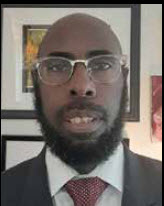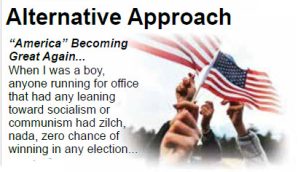 By: Eric Betts
By: Eric Betts
There are many conditions for achieving success as a leader and in team building, but the Golden Rule is indispensable among them. Revered author and leadership expert John Maxwell reminded his readers of certain universal values which are shared among religions and regions of the world: Whatever you want men to do to you, do also to them. Christianity
Hurt not others with that which pains you. Buddhism
Not one of you is a believer until he loves for his neighbor what he loves for himself. Islam
This is the sum of duty: Do naught unto others what you would not have them do unto you. Hinduism
A counterintuitive statement coinciding with the Golden Rule is, “He who makes the gold makes the rules.” This jarring declaration is quite catchy and creative, however, it fails to appreciate the fact that since the dawn of civilization, we all universally “make the gold” and the standards and rules we agree upon as we interact with each other. Those who rule do not necessarily make all the gold, as some think. At some level, the people who are ruled, both rule and make the rules. Even in authoritarian and oligarchic settings, at some level one must answer to the people that are being ruled. History is filled with examples where the governed decided that they could or would no longer exist under systems which undermined these basic universal values. This has been at the heart of many rebellions among the most vulnerable within societies, and the reason for chaos and resentment.
In expanding upon the Golden Rule (which identifies how we all want to be treated,) John Maxwell expands upon six universal desires that we all hold in common. Each of these desires touch upon what it means to be a human and belong to community of fellow humans.
The first universal value says: “I want to be valued (not for what I do but because of what who I am).
“It is important for leaders to both model and set the expectation within teambuilding that the individual is infinitely more valuable at the core of who they are rather than what task they can perform or what products they create. Even when a person can no longer perform a task due to injury, physical limitations, or disability, they still hold as much value within their personhood and as a member of the community. Everyone person is inherently conscious that they hold worth, dignity, and a noble spirit. What is often not emphasized is that the same awareness of one’s own dignity, worth, and spirit is also the same inherent awareness held within the being of others.
This is why when a person is sick or unwell, they are not fired right way or immediately replaced. It is considered uncaring and inhumane. All team members and leaders realize that part of being human is falling ill from time to time, and understand that each member at some point will need the same consideration. One who is sick should not feel forced to come in to work because of fear of being terminated; their overall health is more important to the workplace that the task they would have performed that particular day. In this example, all in the workplace understand that even though human beings become sick and unable to perform a task, this does not make them less valuable. In a society where production is more important than being a human, so many fall into unshakeable depression when they become disabled.
The civil rights icon, Dr. Martin Luther King Jr. prophetically warned modern society against falling into the trap of becoming a “thing-oriented” society versus a “person-oriented” society. This means not using people to acquire things, but valuing people and accomplishing great things together. The things that people produce are not more important than the quality of life of those who produce them. Everyone has the need to be valued because of who they are as people, and they should recognize this same need in others. We are all fellow travelers in life’s journey, and when we honor the humanity of others, we are actually honoring ourselves. We honor others simply because they exist, and we are designed to exist together as one humanity. It is the life, the personality of the individual and the invisible connection they have with fellow humans, that has value by itself.
The second universal need says: “I want to be appreciated (an acknowledgment that what you do matters).”
This universal need suggests that no one wants to be taken for granted. Whether what one does is a result of a cultivated gift or through years of hard work, it should be verbally and tangibly appreciated. Every person is unique, and not everyone performs an assignment exactly the same. They should be regularly and enthusiastically complimented both in public and in private for their performance. It is true that most are simply doing what is expected or what they agreed to do, but everyone who does a task well brings their own unique flavor to what they do. In many cases, there are those who go above and beyond a given assignment.
Although a person is doing simply what is required, the fact that you are able to connect with such a capable person is a blessing. This appreciation must come from the understanding that there are abilities people aren’t born with. Sometimes what people are able to accomplish requires education, training, and observation. There are certain people, because they do not share the same history or background, who are unable to perform the same task as others. This universal value says that it is socially unacceptable to not express appreciation for what others do.
Moreover, when a task is performed, it is helpful for leaders to share how their work is helping the organization. Instead of implying that members of the team are dispensable, share how the goals could not be accomplished without such production. It is quite inspiring when a team member’s work is placed in the context of the overall aims of the company, and how they are helping. There are many examples of employers behaving or expressing the idea that they are doing the team member a favor by allowing them to work for the organization. This conveys the idea that one is not truly needed, but their inclusion on the team was an act of charity. In other words, “I really don’t need you, but I decided to be generous.” No one, whether they be the team leader or member, wants to be viewed as a charity case, and should never make anyone on the team feel this way. If you believe that what you do matters, be intentional about making others believe and feel the same about themselves. This goes beyond company teams or volunteer groups, and extends into family settings. Formulate the habit, wherever you are, of reminding others that what they do matters greatly. This not only fulfills a human need but also inspires.
The third universal desire says: “I want to be trusted.”
When a person goes about their responsibilities with integrity, it is insulting when viewed by others with suspicion. It is hurtful to know that those around them do not believe in them. Everyone wants to be believed and know that others believe in them. When a person is performing to the best of their ability, it is extremely demoralizing when they are constantly being questioned. People don’t mind questions, but questioning a person is different. It comes from perspective of doubt and uncertainty concerning the individual. Having the feeling of being micromanaged or someone looking over your shoulder is profoundly discouraging. Failure to fully empower one to perform the task assigned them is another way of saying, “I don’t trust you.” Just as certainly as you want people to have faith in you, have faith in others.
The fourth universal value says: “I want to be respected.”
The word respect can be both a noun and a verb. Respect is something one possesses in their inner being toward another, and it is also expressed in actions performed toward others. Both the noun and verb are fundamental to being human. No matter how high or subordinate a person’s position, all are worth of equal respect. Those who are holding top-level positions should ponder how they would want to be respected if they were in the same position. They should not demand respect because of their top-level position, but because it is a universal value shared by all. In other words, the groundskeeper, receptionist, or vice-president should never be given a lower level of respect because they are not in the higher positions. Too often, people give higher levels of respect based on the position or income, but all are worthy of respect. Such respect costs us nothing. No one is deserving of discourtesy, rudeness, or bad manners because of their rank on the team.
Even when a person makes a mistake, impoliteness and condescension is unjustified. It is possible to correct a situation without demeaning the person who made the error. Remember that there are many stories about how those in the bottom level positions eventually reached the top. Could it be that they may one day remember those who treated them so disgracefully? One of the greatest motivations in a workplace is when those who are at the top levels give the utmost respect to the ones holding the lowest paid positions.
The fifth universal value says: “I want to be understood.”
This universal desire requires that all members extend themselves to meet people where they are. No one wants to be misinterpreted or misunderstood due to their unique personality or level of hardship. Inside most workplaces, there are differences based on life experience, culture, or geographical origin. In every case, there are differences in thought process and personality. This value requires active listening and making an effort to learn where a person “is coming from.” Sometimes a person can hear a statement from another person but not understand the meaning due to the difference in perspectives and ways of interpreting interactions. This is why personality studies and strengths evaluations are so critical.
In order to understand and not simply be understood, one must take the time to learn about a person’s background and life’s journey. Additionally, it requires learning something about the cultures represented in the work place. There are differences in colloquialisms and vernacular, and leaders recognize the need to educate themselves in this area. Tone of voice or facial expressions can mean one thing in one culture but another in a different culture or setting. Studying and seeking to understand cultural differences is valuable because it reflects the universal value of wanting to be understood. Those who are not a part of minority population groups carry the greatest amount of burden in this area.
Minority groups exist within a society where they have a better understanding of the dominant culture because they have a greater amount of interactions in that space. However, this can easily become a blind spot within the mainstream of society because their interactions with other groups are not as high. Also, the tendency is to unwittingly think that the ways in which they interact are the norm and that there is no need to understand anyone who lives outside of the predominant society. The question is, “Who defines normal?” There are also differences between those who were born into wealth and those grew up in poverty. In any case, everyone feels the need to be understood.
The sixth universal desire says: “I don’t want to be taken advantage of.”
Within any workplace, no one wants to be manipulated or feel used because they feel powerless to say no or set boundaries. Some people will perform whatever is asked because they feel pressure to do so when the one who is making the demand holds power. While it is true that a person has a job to do and should do what is asked, what if it constantly goes beyond what is asked? This is taking advantage, and it is especially true when someone else should actually be hired to perform those additional duties. If you feel the luxury to constantly ask favors of someone because of their subordinate position, they should feel free and confident to ask favors of the one in the higher position. Too often, this is not the case.
Another issue involves utilizing a person’s energies more often because they come across as gentle, manageable, kind, or agreeable. The person who delegates does not make the same requests of the person who is “rough around the edges,” gruff, or who complains more often. If it involves an assignment where everyone should participate, it violates the Golden Rule to gravitate toward and overburden the “nice guy.” You are taking advantage of them in order to avoid conflict and remain comfortable. One should not be punished because they are polite and have a cheerful disposition.
These universal desires are as old as time itself, and should be regarded as sacred in every arena. Swiss philosopher Henry Frederick Amiel says, “He who floats with a current, who does not guide himself according to higher principles, who has no ideal, no convictions — such a man is a mere article of the world’s furniture — a thing to moved, instead of a living and moving being — an echo, not a voice.” May the Golden Rule be your guide.
By: Eric Betts
Assistant Director, Curtis Coleman Center for Religion Leadership and Culture at Athens State University








 June 20, 2025
June 20, 2025



